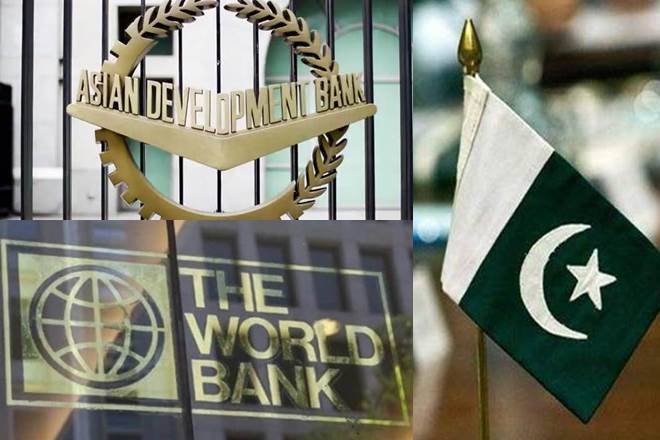By Staff Reporter
ISLAMABAD: The World Bank greenlit $194 million for education and water security projects in Balochistan, while the Asian Development Bank (ADB) signed off on a $350 million loan to bolster women’s financial access across Pakistan.
The $544 million injection targets human capital, infrastructure, and gender equity in a nation grappling with economic and environmental strain.
The World Bank’s board approved the funds on Tuesday, splitting the cash between two initiatives. The larger chunk, $100 million, fuels the “Getting Results: Access and Delivery of Quality Education Services in Balochistan” (GRADES-Balochistan) project. It’s a bid to get 250,000 students into classrooms and lift literacy and numeracy rates in early childhood and primary education—a critical step in a province where learning poverty runs deep.
The project isn’t just about headcounts. It’s rolling out quality early childhood education to prep kids for school, adding double shifts and public-private partnerships to stretch existing capacity, and arranging safe transport to keep students coming. Climate-resilient classrooms are on the blueprint too, alongside a robust teacher training push. Some 5,000 teachers will get ongoing professional development, and 400 female students will score scholarships for pre-service teacher education, setting them up as future mentors.
“The GRADES-Balochistan project aims to reduce learning poverty in the province, while the Balochistan Water Security and Productivity Improvementтак Project will help address water security challenges and enhance climate resilience,” said Najy Benhassine, the World Bank’s Country Director for Pakistan. “The bank remains committed to supporting Balochistan through strategic investments in infrastructure and human development.”
Inga Afanasieva, the project’s team leader, flagged its wider ripple effects. “This initiative addresses critical gaps in access to and quality of early education while strengthening disaster resilience and environmental sustainability,” she said.
The second tranche, $94 million, flows into the Balochistan Water Security and Productivity Improvement Project (BWSPIP). It’s aimed at lifting livelihoods for smallholder and tenant farmers across the Nari, Talli, and Lehri river basins in the Kachi Plain, while upgrading water supply services in Quetta. Half a million people stand to gain better access to basic water, with another 80,000 benefiting from climate-proof infrastructure.
The project doubles down on flood protection, ramps up water for farming and other uses, and overhauls water supply delivery. Irrigation upgrades are the backbone, promising a lift in agricultural output and economic stability for rural communities.
Carolina Dominguez Torres, BWSPIP’s task team leader, tied it to national priorities. “The project supports the implementation of Pakistan’s Resilient Recovery Framework and aims to benefit farming communities and Quetta residents,” she said. “It also includes a strong focus on empowering women in community-level water management.”
Meanwhile, the ADB has sealed a $350 million loan package to supercharge women’s access to finance in Pakistan. Signed by Sabina Qureshi, Additional Secretary of the Economic Affairs Division, and Dinesh Raj Shiwakoti, head of ADB’s Project Administration Unit, the deal splits into a $300 million policy-based loan and a $50 million financial intermediary loan. The State Bank of Pakistan also penned the project agreement for the smaller portion.
Dubbed the Women Inclusive Finance Sector Development Programme, it builds on earlier reforms and zeros in on four pillars: crafting policies and regulations to favor women’s financial inclusion, boosting the supply of finance for women, propping up female entrepreneurs, and embedding fair practices in the financial sector.
The ADB says it’s a game-changer for Pakistan’s drive toward inclusive, resilient, and sustainable growth, a lifeline for women long sidelined in the country’s economic story.
Copyright © 2021 Independent Pakistan | All rights reserved




